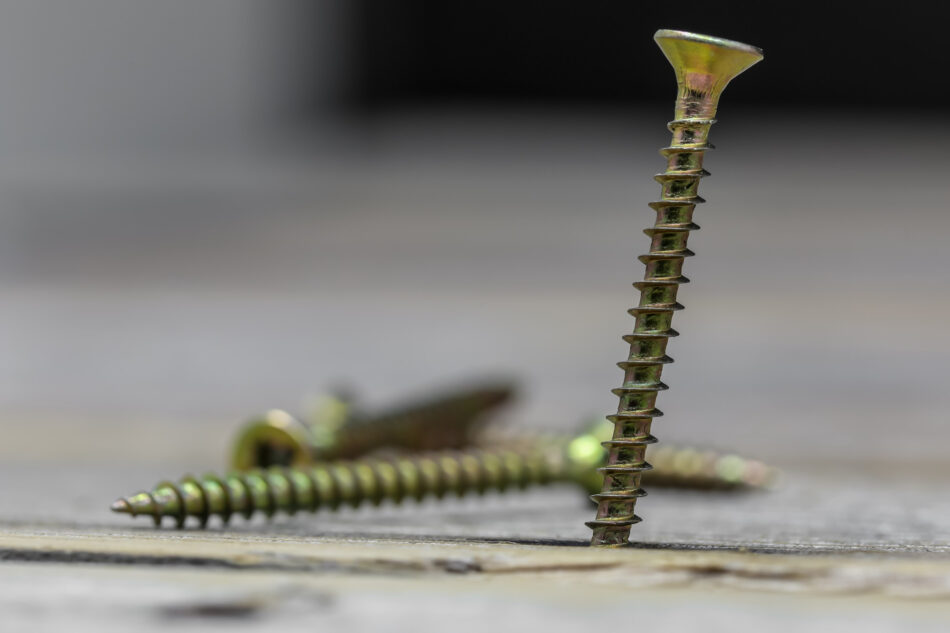Fastener bolts serve as critical components in numerous applications across industries, from construction to automotive and aerospace. Their role in holding structures together ensures safety, reliability, and longevity. However, improper use can result in catastrophic failures, costly repairs, and potential harm.
In this blog post, we’ll delve into common mistakes to avoid when utilizing fastener bolts, offering insights and tips for proper installation and performance.
Ignoring Proper Torque Specifications
One prevalent error is neglecting or inaccurately estimating torque specifications. Overtightening or undertightening bolts may lead to structural failures. Each bolt has specific torque requirements based on size, material, and application.
It’s crucial to consult manufacturer specifications or industry standards for accurate torque values. Investing in a quality torque wrench and adhering to proper torque procedures is essential to prevent overloading or loosening.
Not Using the Correct Bolt Grade or Material
Selecting the wrong bolt grade or material can compromise the integrity of the fastening system. Different grades withstand specific loads and environmental conditions. Using a low-grade bolt in a high-stress or corrosive environment can result in premature failure.
Understanding application requirements and choosing bolts made from suitable materials, such as stainless steel or alloy steel, is vital for durability and reliability.
Improper Installation Techniques
Installation mistakes like cross-threading, uneven tightening, or inadequate alignment can damage bolts or lead to failure. Properly preparing mating surfaces, ensuring component alignment, and smoothly threading bolts without force are crucial.
Using lubricants and following recommended tightening sequences enhance system integrity. Preload verification techniques, such as turn-of-nut or torque-angle methods, further ensure proper installation.
Neglecting to Check for Corrosion and Wear
Corrosion and wear, especially in outdoor or corrosive environments, pose threats to fastener bolts. Regular maintenance and inspection are essential to identify and replace damaged bolts promptly.
Applying corrosion-resistant coatings or choosing bolts made from corrosion-resistant materials can mitigate environmental exposure effects and extend the system’s lifespan.
Overlooking Environmental Factors
Environmental conditions, such as temperature variations, vibration, moisture, and chemical exposure, can impact fastener bolt performance. Ignoring these factors during bolt selection and installation can lead to premature failure.
Considering environmental challenges and choosing bolts with appropriate coatings, materials, and locking mechanisms is essential for long-term reliability.
Neglecting Proper Torque Specifications
Failing to adhere to proper torque specifications is a cardinal sin in fastener bolt usage. Torque plays a crucial role in ensuring a secure connection.
Inadequate clamping force due to undertightening or over-tightening can result in loose connections, misalignment, and structural integrity issues. Following manufacturer guidelines and using calibrated torque tools is imperative for accurate torque values.
Improper Bolt Selection
Improperly selecting bolts for a given application, based on material, grade, and configuration, can lead to disaster. Bolts must match specific loads, environmental conditions, and operational requirements. Careful consideration of factors like material, diameter, thread pitch, and length is necessary.
Using the wrong type of bolt for high-vibration environments without proper locking mechanisms can compromise assembly integrity.
Ignoring Environmental Factors
Environmental hazards like corrosive elements and extreme temperatures can accelerate bolt degradation. Failure to account for these factors during bolt selection and installation can result in corrosion, galvanic corrosion, and stress corrosion cracking.
Using corrosion-resistant coatings, selecting appropriate bolt materials, and implementing proper sealing techniques are crucial measures to mitigate these risks.
Inadequate Installation Practices
Inadequate installation practices, including improper tightening sequence, uneven torque distribution, insufficient preload, and inadequate lubrication, can compromise bolt performance.
Proper alignment, cleaning thread surfaces, and defect inspections prior to installation are crucial. Adhering to established installation procedures, utilizing proper tooling and techniques, and conducting post-installation inspections ensure reliability and longevity.
Avoiding common mistakes such as neglecting torque specifications, using incorrect bolt grades, improper installation techniques, overlooking corrosion and wear, and ignoring environmental factors, you can enhance the performance and reliability of fastening systems.
Following manufacturer recommendations, industry standards, and best practices ensures the proper selection, installation, and maintenance of fastener bolts, preventing costly failures and ensuring long-term reliability.

